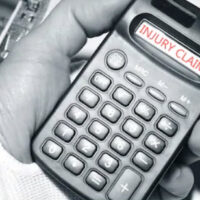Tips for Filing a Personal Injury Lawsuit

Filing a personal injury claim is typically a complex endeavor, as it requires compliance with a host of complicated legal rules and deadlines. Fortunately, there are a few things that plaintiffs can do to make the process a bit more manageable, so if you are thinking about filing a personal injury claim, you should contact an experienced personal injury lawyer who can advise you accordingly.
Getting Medical Attention
One of the best things that an accident victim can do after sustaining an injury is to seek medical attention. Taking this step not only ensures that injured parties get the care that they need, but also starts the process of creating a record linking a specific accident to a particular injury, which can prove crucial to the outcome of a personal injury claim. For these reasons, plaintiffs should take great care to save copies of all injury-related medical records, including:
- Notes and statements from physicians regarding the severity and nature of the injuries;
- Insurance records;
- Medical bills outlining the cost of diagnosis and treatment;
- The results of x-rays, scans, and lab tests;
- Photographs of the injuries; and
- Documents explaining the preferred course of treatment.
Lawyers, judges, and insurance companies often rely on this type of medical documentation when negotiating a settlement or issuing a monetary award, making it particularly important for injured parties to keep careful records.
Keeping Track of Expenses
Medical records are not the only types of accident-related documents of which plaintiffs should keep copies. In fact, plaintiffs should track all of their accident-related expenses, including hospital bills, bills for property damage, and proof of lost wages. Taking this simple step can make all the difference when it comes to ensuring that an injured party receives enough compensation to actually cover his or her losses.
Filing a Police Report
Those who have been involved in accidents, particularly car crashes, should also be sure to file a police report after their collision. These records include a factual description of the crash, as well as the contact information and names of the parties involved, all of which can be used to establish fault. Often, injured parties are not even required to take this step, as the police officers who respond to the accident will submit a report on their own. In these cases, accident victims should obtain a copy of the document, as these records can play a crucial role in laying out the facts of the case, as well as liability for the crash.
Knowing Filing Deadlines
Finally, before filing a personal injury lawsuit in Florida, plaintiffs should carefully go over important filing deadlines that could apply to their case. In most situations, injured parties have four years from the date of their accident to file a claim against the at-fault party who caused it, but this isn’t always true. Wrongful death claims, for instance, must be filed within two years of the date of the accident in question.
Call Today for Help with Your Case
Please call Boone & Davis at 954-566-9919 to speak with an experienced Fort Lauderdale personal injury lawyer about filing a claim against the person or entity who caused your own accident.
